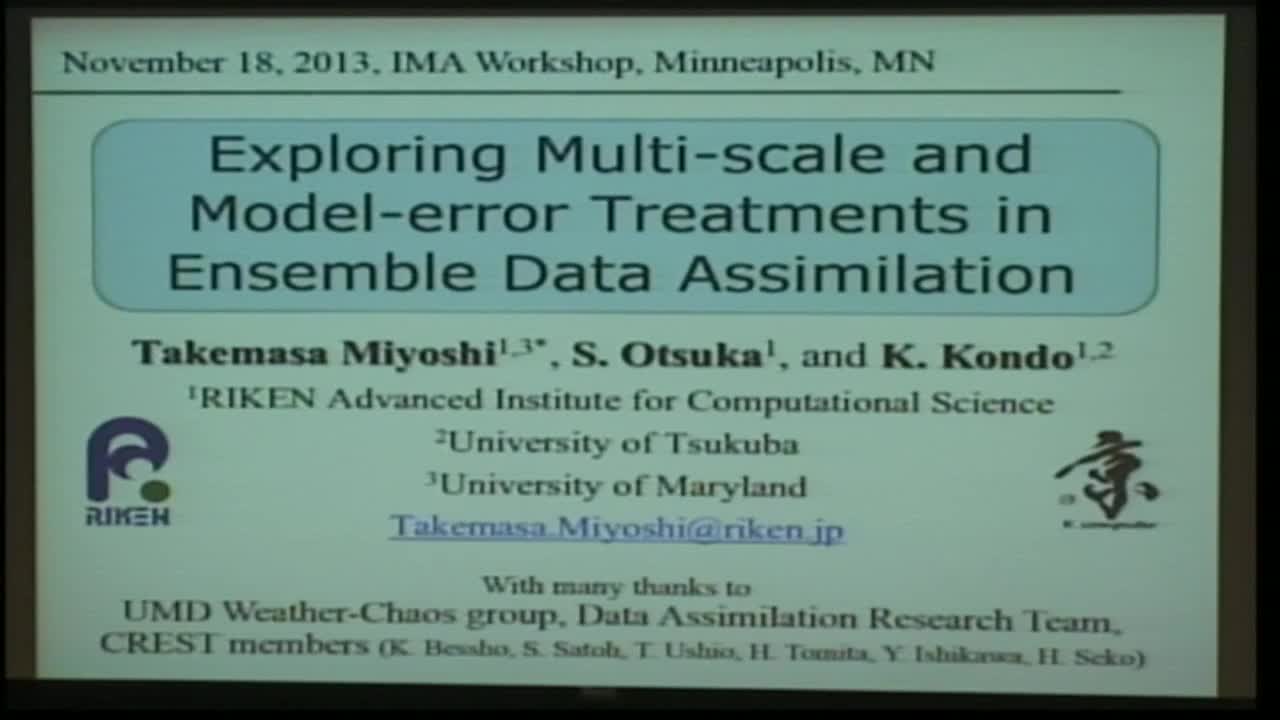Exploring Multi-scale and Model-error Treatments in Ensemble Data Assimilation
Presenter
November 18, 2013
Keywords:
- Multiple scale
MSC:
- 34E13
Abstract
Ensemble data assimilation methods have been improved consistently and have become a viable choice in operational numerical weather prediction. Dealing with multi-scale error covariance and model errors is among the unresolved issues that would play essential roles in analysis performance. With higher resolution models, generally narrower localization is required to reduce sampling errors in ensemble-based covariance between distant locations. However, such narrow localization limits the use of observations that would have larger-scale information. This study aims to separate scales of the analysis increments, independently of observing systems. Inspired by M. Buehner, we applied two different localization scales to find analysis increments at the two separate scales, and obtained improvements in simulation experiments using an intermediate AGCM known as the SPEEDY model. Another important issue is about the model errors. Among many other efforts since Dee and da Silva’s model bias estimation, we explore a discrete Bayesian approach to adaptively choosing model physics schemes that produce better fit to observations. This presentation summarizes our recent progress at RIKEN on these theoretical and practical topics, and also introduces our future perspectives and challenges including “Big Data Assimilation” for extremely-short-range weather forecasting using next-generation high-resolution weather simulations and supercomputers, and new observing instruments.
